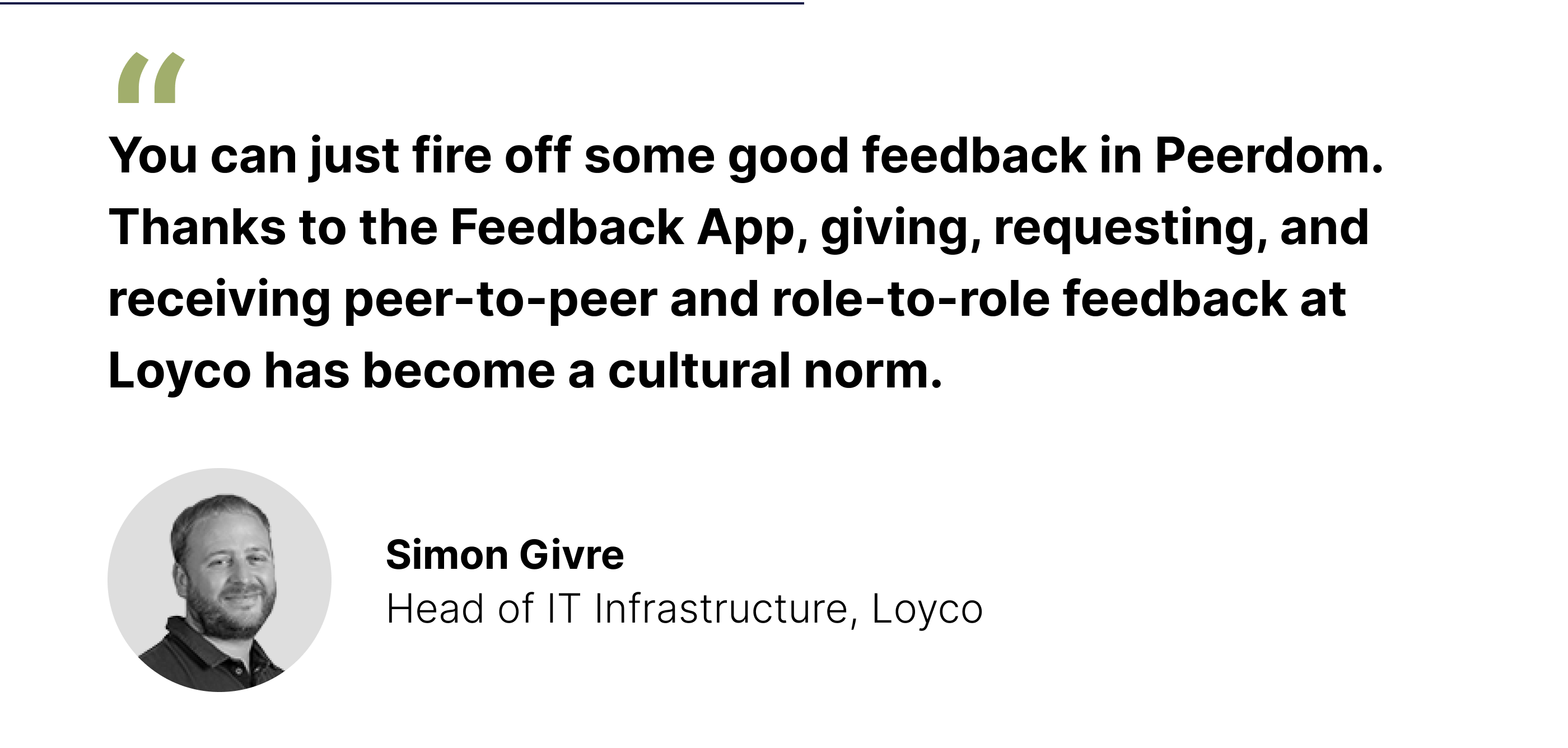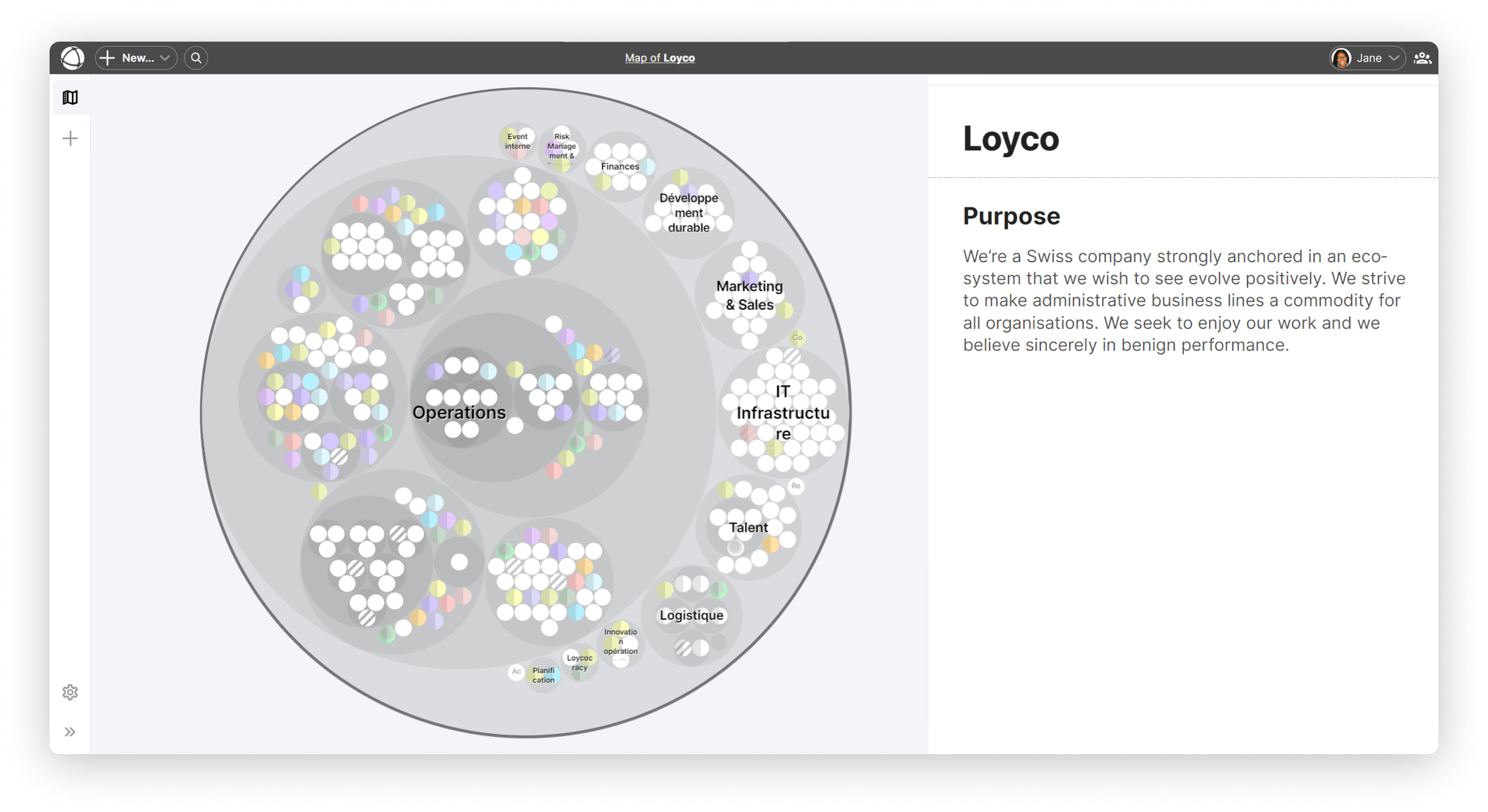Leveraging information transparency and forging a new business line
Discover how Loyco realized its bold workplace vision of radical transparency and decentralized authority while growing the business.

Loyco isn’t just a provider of business services.
Yes, the Swiss company offers payroll, accounting, and other administrative services. But it also is a visionary advocate of a better way to work. A more human, participatory, sustainable, and efficient way of working.
In 2018, Loyco began its pioneering journey to work differently. Instead of using a standard corporate hierarchy and chain of command based on job titles, it flattened management layers and empowered employees with substantial authority based on the specific roles they play. Loyco also emphasized information transparency, in part to enable front-line workers to be able to make autonomous decisions within their roles.
The company even coined a new term for its approach. Taking inspiration from Holacracy and Sociocracy—two related methods of distributing power and decision-making within organizations—Loyco leaders called their organization model “Loycocracy.”
Their way of working was so infectious that in 2019, Loyco started offering a new service to advise clients about how they, too, can become more-horizontal, role-based organizations.
A key to Loyco’s overall success and its external Loycocracy consulting service is the use of Peerdom’s organization maps, says Simon Givre, head of IT infrastructure at Loyco. The real-time digital work map not only enables Loyco to operate in a transparent, flat, efficient way, but also shows Loyco’s customers that the new style of working is supported by tangible, effective technologies.

A history of transparency
In 2018, the company made its organizational map publicly available to both team members and visitors to Loyco’s website. Loyco provides public visitors a wealth of information, including role descriptions, who’s on what team, and how the organization is structured.
New hires at Loyco are impressed by their organizational map because it provides an intuitive, up-to-date portrait of the entire company and how it works, Simon says. The search features, for example, make it easy for new employees to find colleagues who can help them achieve different tasks right from day one.
“Newcomers often say, ‘Wow, it's really cool visually,’” Simon says. “They really enjoy it.”
Easy-to-provide feedback
One of the Peerdom features that Loyco most appreciates is the Feedback App. Rather than having to navigate to a separate software platform, team members can use the Feedback App to share reactions and comments with one another as they work together. Since adopting the tool, Loyco has re-designed its entire organization-wide feedback process around providing peer-to-peer feedback at the role level.

Another of Loyco’s favorites is the Contribution App. This allows individuals to publish how they allocate their time among their different responsibilities and roles. It’s also possible to show the relative contributions of entire teams, and to share these values with public visitors.
For Simon and his colleagues at Loyco, the Contribution App delivers the transparency the company promises customers. “It's important for us to show the outside world how our time is spent,” Simon says.
In fact, this level of public disclosure is such a priority that Loyco employees even put a link to their Peerdom profile in their email signatures, making it easy for outsiders to see roles and contribution amounts.
“We add to the signature of all our emails and say, ‘Here are my roles. Go there and visit. This is what we will do for you.”
Sharing just the right amount of information
There are limits to Loyco’s openness to public disclosure, though. Loyco leaders were concerned with the potential for cyber-security issues when the company initially broadcast all its roles publicly. In principle, anyone could learn about the specific enterprise software tools an employee was using, which made the company more vulnerable to hackers.
To solve the problem, Loyco took advantage of Peerdom’s access rights system by sharing specific software names in the hidden “Notes” section on each role description. This allows logged-in users to provide additional information regarding their roles that is only visible internally.
In effect, Loyco could realize the full potential of radical transparency without trading off the security of their most vulnerable data.
Loyco and Peerdom: A Swiss Symbiosis
Loyco’s annual revenue grew 35 percent from 2019 to 2022. Its headcount has risen from 91 in 2019 to 133 this year.
It also has certified as a B Corp and deepened its commitment to a more decentralized, human-centered, and transparent culture.
Loyco’s evolution has been in tight partnership with Peerdom. As one of Peerdom’s first five customers, Loyco helped shape, design, and pilot-test the Feedback App. Their joint work is now available to all Peerdom customers.
Loyco has also become a “Companion”—that is, a trusted expert and coach for the growing ecosystem of Peerdom users.

Loyco Lives Its Talk
Today, Loyco is spreading its vision of a better way to work together, alongside offering its traditional business services.
Early on, clients became intrigued by Loyco’s success and unconventional, transparent approach, and wanted to learn more, says Isaline Thorens, consultant at Loyco.
"People were always asking us, ‘Can you tell us about your structure? What’s working and what’s not working?’” she says.
That interest prompted Isaline and peers at Loyco to launch the external Loycocracy consulting business. It’s attracted nearly 20 clients and counting. The progress has much to do with how Loyco practices what it preaches, including its use of Peerdom’s work maps to assist its way of working.
“What draws people to us,” Isaline says, “is that we actually live the talk.”

Ed Frauenheim is a writer, speaker and consultant. He has published more than 50 stories on great workplace cultures in Fortune and co-written books including A Great Place to Work For All and Reinventing Masculinity: The Liberating Power of Compassion and Connection.